- About
- Research
-
-
- Special Reports & Features
- Pretendians and Publications: The Problem and Solutions to Redface Research
- Pinasunniq: Reflections on a Northern Indigenous Economy
- From Risk to Resilience: Indigenous Alternatives to Climate Risk Assessment in Canada
- Twenty-Five Years of Gladue: Indigenous ‘Over-Incarceration’ & the Failure of the Criminal Justice System on the Grand River
- Calls to Action Accountability: A 2023 Status Update on Reconciliation
- Data Colonialism in Canada’s Chemical Valley
- Bad Forecast: The Illusion of Indigenous Inclusion and Representation in Climate Adaptation Plans in Canada
- Indigenous Food Sovereignty in Ontario: A Study of Exclusion at the Ministry of Agriculture, Food & Rural Affairs
- Indigenous Land-Based Education in Theory & Practice
- Between Membership & Belonging: Life Under Section 10 of the Indian Act
- Redwashing Extraction: Indigenous Relations at Canada’s Big Five Banks
- Treaty Interpretation in the Age of Restoule
- A Culture of Exploitation: “Reconciliation” and the Institutions of Canadian Art
- Bill C-92: An Act respecting First Nations, Inuit, and Métis Children, Youth and Families
- COVID-19, the Numbered Treaties & the Politics of Life
- The Rise of the First Nations Land Management Regime: A Critical Analysis
- The UN Declaration on the Rights of Indigenous Peoples in Canada: Lessons from B.C.
- View all reports.
- Special Reports & Features
-
-
- Yellowhead School
- The Treaty Map
- LIBRARY
- Submissions
- Donate
On June 19, 2023, Canadian MPs are expected to vote on the Métis Government Recognition and Self-Government Agreement, meant to recognize the Métis Nation of Ontario’s (MNO) jurisdiction over citizenship, elections, and governance administration.
While this might seem a pleasant story and easy win for Canada just in time for National Aboriginal Day, many First Nations chiefs in Ontario have denounced the Agreement as a form of modern-day colonialism. The Agreement is being pushed through at a time when serious questions about the legitimacy, membership, and jurisdiction of the MNO in Ontario remain unanswered.
At stake here is not merely jurisdiction over local internal administrative functions, but, we fear, the encroachment into First Nations governance and lands.
MPs might consider critical reflection before the vote on June 19th, and seek answers to some outstanding questions.
It is worth noting that this vote occurs on the eve of National Indigenous People’s Day. Timing that we suspect is intentional and as such, a vote result that is a foregone conclusion (no one will want to appear anti-Indigenous). But have MPs done their homework here? Will they be voting due to a reconciliatory social pressure rather than exercising critical thinking about what it would mean to recognize MNO jurisdiction in First Nation lands where it otherwise does not exist? Will MPs be whipped to vote by their leadership or will this be a free vote? Shouldn’t MPs at least be informed of the facts and consequences of passing this Agreement? And why do First Nation requests for greater transparency continue to be ignored?
The MNO Self-Government Agreement’s Slippery Slope
The MNO has said that it is not interested in exercising control over First Nations lands. According to its president, the Métis Government Recognition and Self-Government Agreement is about matters internal to Ontario’s main Métis governing body. But what is self-government without land? Platitudes aside, MNO has in fact been participating in land-use decision making in our territories for some time through the consultation and accommodation regime. Indeed, as noted on its website, MNO has been increasing its capacity in policy areas related to land and resources, energy, mining, and forestry with the goal of “increasing Métis participation in these sectors by fostering economic development and resource benefits sharing.”
While the MNO’s self-government agreement might deal with internal governance issues, it establishes what Ontario First Nations see as a slippery slope: all signs point to MNO asserting more control in land use decision making. The Agreement itself is designed to lead to a treaty within two years, and treaties are about land.
Métis Kinship in Ontario?
Establishing Métis jurisdiction and rights to lands where there have been none historically is not reconciliation. It is a form of modern colonization, emerging from the belief that Canada is the arbiter of rights and title, rather than the rights holders. Has MNO leadership considered that their approach attempts to erase First Nation authority?
There is an alternative. Métis nationhood emerged in part in the Red River Valley through kin-based recognition between new peoples and their surrounding First Nations kin. Combined with a long history of family making and an eventual resistance against the emerging colony, Métis political consciousness was born as part of a distinct peoplehood in a distinct place. Métis nationhood is often mistakenly framed as the result of ‘mixing’ between European and First Nations peoples in the fur trade. However, the Métis Nation more accurately emerged as a cohesive political entity through inter-nation treaties and diplomacy between the Métis and First Nations in the Red River Métis homeland.
It seems that the Métis Nation of Ontario is sidestepping First Nations because they know their claims will be scrutinized. Otherwise, why have First Nations not heard from their so-called relatives?
Robbing the Grave to take the Land
An additional issue with MNO’s approach is that it appears rooted in the conflation of racial mixing with that aforementioned political consciousness. In short, the MNO has been accused by Métis and First Nations observers alike of turning Anishinaabe ancestors into ‘Métis’ in order to establish contemporary claims to territories outside the Red River Métis homeland.
As recent reports by the Wabun Tribal Council and Robinson-Huron Waawiindamaagewin show, the MNO is capitalizing on the Indian Act’s history of enfranchising (or removing Indian status from) Indian women and their children to make the case for an historical presence.
MNO is conveniently reading inaccuracies in the historical record to form the basis of jurisdiction where there is none.
For instance, Anishinaabe women who lost Indian status are still Anishinaabe. And just because an individual was recorded as, “Cree breed” or “Chippewa breed” does not mean they are magically Métis, as the MNO asserts and which forms a significant basis of their claims. These people in many cases are our ancestors, and should not be used against us to encroach on First Nation rights or lands.
The Threat to Ontario First Nations
The anchor underpinning MNO’s broader claim in Ontario is the court decision, R. v Powley (2003). The Supreme Court of Canada recognized Métis hunting rights, but did so in a specific area around Sault Ste. Marie. Yet, somehow First Nations’ land beyond that space is now being targeted through the 2017 creation of seven “Historic Métis Communities in Ontario” stretching across large swaths of First Nations territories. What was the process followed to extend Powley to these other “Historic Métis Communities”?
More importantly, why has Canada refused to even consider crucial information provided by First Nations that evidences serious problems with the factual accuracy of MNO’s claims?
First Nations lands in Ontario are not Métis territory. The histories are complicated, and in some cases First Nations have failed to claim those who rightfully belong. Yet, given the emergence of these new Historic Métis Communities, the fact that the Métis Government Recognition and Self-Government Agreement is only a stepping stone to a full-blown treaty, and the fact that MNO has pressed for accommodation, consultation, and benefit sharing in land use contexts in our territories, the writing is on the wall: this Agreement is a threat to Ontario First Nations.
We challenge Members of Parliament to question the foundation of this Agreement and its implications. We call on the Government to delay this vote until First Nation leadership is heard. And we call on the Métis Nation of Ontario to begin to meaningfully honor their obligations to First Nations.
Citation: Pedri-Spade, Celeste et al., “A Call to Reconsider the Métis Self-Government Agreement in Ontario” Yellowhead Institute. 16 June 2023. https://yellowheadinstitute.org/2023/06/16/call-to-reconsider-mno-self-government/
Image Credit: Jean Marshall



